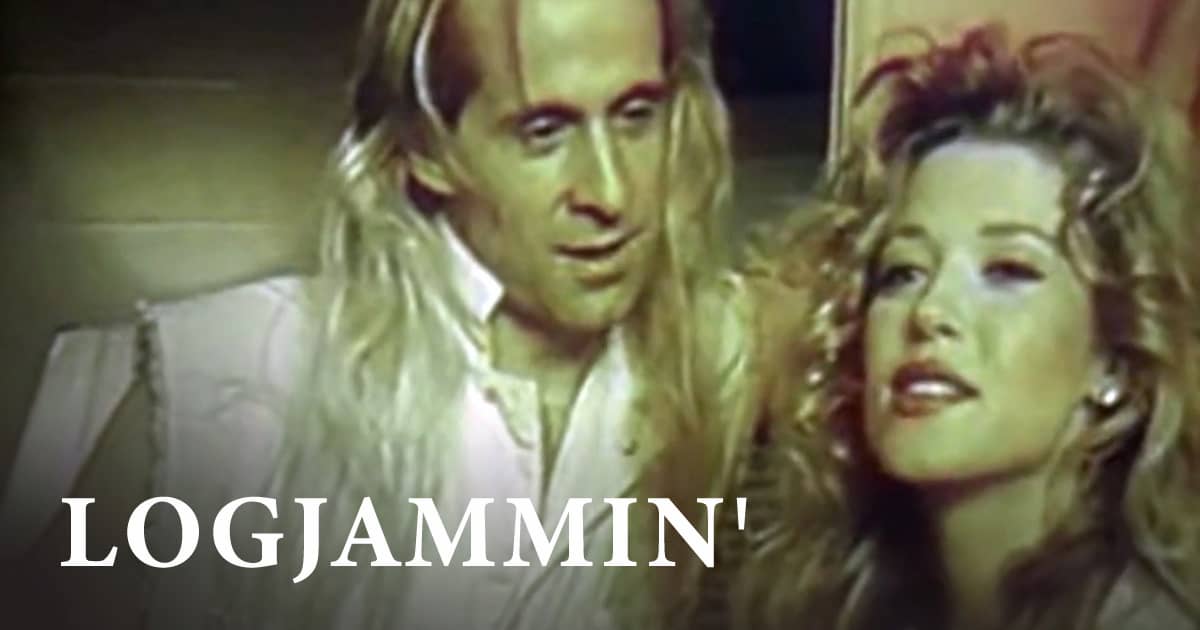|
 New German Cinema generally describes a movement lasting from roughly the mid-1960’s until the mid-1980’s in West Germany. It officially came into being when a group of upstart West Germans (including Edgar Reitz and Alexander Kluge) penned a manifesto which stated "The old cinema is dead. We believe in the new cinema." This sentiment quickly gained the admiration and following of several other burgeoning filmmakers in West Germany, among them Werner Herzog, Wim Wenders, Hans-Jürgen Syberberg, and, most importantly, Rainer Werner Fassbinder. Together, these filmmakers (along with some French expats like Jean-Marie Straub and his wife and frequent collaborator, Daniele Huillet) would remake the cinematic landscape of Germany and all of Europe. Werner Herzog Likely the most well known of the New German Cinema filmmakers, Werner Herzog is an institution at this point. A prolific director of both fiction and non-fiction films, he is as renowned for his deadpan personal manner as for his strenuous filming style. If you’ve never seen a Werner Herzog film, it’s time to start, whether you prefer traditional narrative filmmaking or documentary work. Some of my favorite narratives of his from the New Cinema-era include Fitzcarraldo (1982), Aguirre, the Wrath of God (1972), and Nosferatu the Vampyre (1979). It is notable that all of these star notorious actor Klaus Kinski, about whom Herzog later directed the documentary My Best Fiend (1999) which is absolutely worth seeing if you like those films. Among his documentaries from this era, I would most recommend The Great Ecstasy of Woodcarver Steiner (1974) and Land of Silence and Darkness (1971). Outside of his German New Cinema work, Herzog has directed numerous masterpieces in both modes, and to try and name all of them here would be virtually pointless, but two of the most popular and successful are narrative Bad Lieutenant: Port of Call New Orleans (2009) and documentary Grizzly Man (2005). It’s hard to go wrong with a Werner.  Wim Wenders Wim (born Wilhelm) casts a very quiet and introspective shadow over a vast and largely well-regarded filmography of movies ranging from personal religious narratives to musical documentaries, however all of his best work retains a sense of awe at the glory of humanity. His two most well-known works are both narratives, and were both made in the 80’s (Paris, Texas (1984), and Wings of Desire (1987)), but both his earlier narrative work (Kings of the Road (1976) in particular) and his post-New Cinema documentary work, particularly the critical hits Buena Vista Social Club (1999) and Pina (2011), are entirely deserving of admiration. Wenders is a highly cinematic filmmaker (as redundant as that sounds), and his focus on beautiful photography is integral to all of his work.  Straub-Huillet Strict Bressonian’s to the nth degree, the French filmmaking duo of Jean-Marie Straub and Daniele Huillet found a home in transgressive 60’s and 70’s West Germany. Through extremely rigorous methods (well-observed in Pedro Costa’s excellent documentary Where Does Your Hidden Smile Lie? (2001), Straub-Huillet were able to capture a completely unique style which fuses an obsession with formal restraint and austerity with a radical view of history, best seen in New Cinema films such as The Chronicle of Anna Magdalena Bach (1968), Moses and Aaron (1973), and From the Clouds to the Resistance (1979). These are among the most daring and formally experimental films made by anyone during this era, and they should be approached with that mentality. However, if you like this work, they have no shortage of late-career masterpieces (especially the incredible Sicilia! (1999), which served as the subject of the aforementioned Costa doc). Fun fact: Straub was originally a Cahiers du Cinema contributor, but many of his writings were too inflammatory for Francois Truffaut to even publish!  Among the many other great films and directors I won’t cover in detail here are Alexander Kluge - Yesterday Girl (1966), Part-Time Work of a Domestic Slave (1973) Ulli Lommel - The Tenderness of Wolves (1973) Helma Sanders-Brahms - Germany, Pale Mother (1980) Peter Schamoni - No Shooting Time for Foxes (1966) Volker Schlöndorff - The Lost Honour of Katharina Blum (1975), The Tin Drum (1979) Werner Schroeter - Day of the Idiots (1981) Ula Stoeckl - The Cat Has Nine Lives (1968) Hans-Jürgen Syberberg - Hitler: A Film from Germany (1977), Parsifal (1982) ...is there anyone I’m forgetting? Hmmmm? Oh yeah, that’s right... Rainer Werner Fassbinder Undoubtedly the central lamplight of the entire New Cinema, Fassbinder is my favorite filmmaker of all time. His early work is based in a largely French style with heavy influence from Bresson and the French New Wave (these are still quite excellent (particularly Why Does Herr R. Run Amok? (1970) and Beware of a Holy Whore (1970), and owe much to his background in experimental theatre), however he would outgrow this when, on one fateful day, he was exposed to the Hollywood melodramas of fellow German Doulas Sirk. Slammed at the time of their release for being overly frail and appealing exclusively to women, Fassbinder saw Sirk’s films as a revelation and did a lot of work in altering critical opinion of Sirk over the rest of his career. Fassbinder would integrate Sirk’s melodramatic, lush, colorful, romantic style into his highly intellectual polemics for the next several years, and from this would create a number of masterpieces (The Merchant of Four Seasons (1971), The Bitter Tears of Petra von Kant (1972), Ali: Fear Eats the Soul (1974), and Fox and His Friends (1975), to name just a few). Ever restless, Fassbinder would soon outgrow this phase of his career too, moving into waters which were even more evolved and personal. He was an international star at this point, and would have larger budgets and more garish and stylized films such as In a Year with 13 Moons (1978), The Marriage of Maria Braun (1979), Lola (1981), Veronika Voss (1982) and his television mini-series Berlin Alexanderplatz (1980). Sadly, Fassbinder would drop dead after completing the queer-cinema masterwork Querelle in 1982 due to a mixture of cocaine of barbiturates. He was only 37, but he left behind over 30 films. 
ol yeller fucked around with this message at 22:41 on Dec 1, 2018 |
|
|
|

|
| # ? May 5, 2024 22:16 |
|
Great write up OP, this era of a national cinema is immensely dense for how (relatively) short it lasted. My own personal blind spot from the filmmakers you've mentioned is Fassbinder, I've only seen one and a half films I believe (Petra von Kant and selections from A Year with 13 Moons, which seems like a remarkable movie). I definitely need to watch more, even if some of works can be very emotionally draining just to sit through. the way he utilized the genre language of melodrama to produce a truly visceral response is really remarkable
|
|
|
|
Petra Von Kant is one of his most difficult in this posters opinion, and I would recommend something like Marriage of Maria Braun, Lola, or Ali as easier intros.
|
|
|
|
In Training posted:Great write up OP, this era of a national cinema is immensely dense for how (relatively) short it lasted. My own personal blind spot from the filmmakers you've mentioned is Fassbinder, I've only seen one and a half films I believe (Petra von Kant and selections from A Year with 13 Moons, which seems like a remarkable movie). I definitely need to watch more, even if some of works can be very emotionally draining just to sit through. the way he utilized the genre language of melodrama to produce a truly visceral response is really remarkable Ali: Fear Eats the Soul is really good and surprisingly (or depressingly) topical.
|
|
|
|
The writeup in the op is very cool. I've only seen a few herzogs and wenders personally (Pina is maybe the only essentially 3D film made) but I'm curious, was there any overarching commonality to this moment in film besides the time and place? The statement that the old Cinema is dead seems like a rejection or reaction to something, but what exactly was it they were trying to move away from?
|
|
|
|
I would imagine like most Film cultures post WWII it was a lingering resentment and rejection of the nationalist (and often fascist) aesthetics these filmmakers had grown up with before and during the war. By the mid 60s they were old enough and had enough cultural cache to share and spread their ideas, you see similar trends in 60s Japanese/Italian/French/etc film, and probably other art forms if I knew more about them.
|
|
|
|
op is missing edgar reitz (e: cant read lol) and harun farocki in a year of 13 moons along with querelle are the best fassbinders our hitler: a film from germany is probably the best film the movement produced huillet & straub are my favorite directors of all time and should certainly be noted for their contributions to the movement (as straub himself has pointed out, only a non-national could make a film about germany like not reconciled) however it's also worth noting that the only films of theirs that really, truly fall into it are their 60s films -- there is a marked broadening of texts adapted (and therefore language) and particularly country of origin from othon onwards. they may be truly the only filmmakers to lay claim to being "european" rather than belonging to a specific national cinema. another reason they tend to get classified as such is because the only major scholarly book on them for almost two decades (barton byg's landscapes of resistance) focused on placing their films in the german context. and while there's a lot of bresson in their films i don't like how they get pigeonholed that way... there's just as much mizoguchi, dreyer, chaplin, lubitsch, griffith, rossellini, and -- as tag gallagher has gone to great lengths to point out, their primary influence -- john ford in their films from the clouds the resistance is 1979 not 1981 btw landscapes of resistance is free to read online https://publishing.cdlib.org/ucpressebooks/view?docId=ft4m3nb2jk;query=;brand=ucpress Radio Spiricom fucked around with this message at 23:49 on Nov 30, 2018 |
|
|
|
In Training posted:I would imagine like most Film cultures post WWII it was a lingering resentment and rejection of the nationalist (and often fascist) aesthetics these filmmakers had grown up with before and during the war. By the mid 60s they were old enough and had enough cultural cache to share and spread their ideas, you see similar trends in 60s Japanese/Italian/French/etc film, and probably other art forms if I knew more about them. basically everyone from this generation's parents were literal nazis lol
|
|
|
|
Radio Spiricom posted:basically everyone from this generation's parents were literal nazis lol It's a living!
|
|
|
|
Radio Spiricom posted:huillet & straub are my favorite directors of all time and should certainly be noted for their contributions to the movement (as straub himself has pointed out, only a non-national could make a film about germany like not reconciled) however it's also worth noting that the only films of theirs that really, truly fall into it are their 60s films -- there is a marked broadening of texts adapted (and therefore language) and particularly country of origin from othon onwards. they may be truly the only filmmakers to lay claim to being "european" rather than belonging to a specific national cinema. another reason they tend to get classified as such is because the only major scholarly book on them for almost two decades (barton byg's landscapes of resistance) focused on placing their films in the german context. and while there's a lot of bresson in their films i don't like how they get pigeonholed that way... there's just as much mizoguchi, dreyer, chaplin, lubitsch, griffith, rossellini, and -- as tag gallagher has gone to great lengths to point out, their primary influence -- john ford in their films cool
|
|
|
|
one of the last things i watched on Filmstruck was Baal, Schlöndorff's long-lost 1970 film starring Fassbinder as a self-destructive misogynist poet, based on a Brecht play he wrote when he was 20. definitely worth a watch if you can find it now. i love Fassbinder as an actor, i'm sure he saw aspects of himself in that character. same for Fox and His Friends which is a favorite of mine.
|
|
|
|
HP Hovercraft posted:one of the last things i watched on Filmstruck was Baal, Schlöndorff's long-lost 1970 film starring Fassbinder as a self-destructive misogynist poet, based on a Brecht play he wrote when he was 20. definitely worth a watch if you can find it now. ? criterion has a physical release of it
|
|
|
|
fassbinder was a cool and crazy womanizing 1960s movie director and i like him. some of his films are avante garde and some of them are more immediately palatable. i've only seen two of them so far. petra von kant is an austere but interesting art house film that i think is about the conflict between abstract rationality and concrete nature through the medium of art and sex. marriage of maria braun is a more palatable movie about a woman who takes every opportunity to succeed in post-ww2 germany; the drama turns on whether her success is or is not morally acceptable.
|
|
|
|

|
|
|
|
Lol
|
|
|
|

|
| # ? May 5, 2024 22:16 |
|
i've been making my way through Heimat. it's really good
|
|
|














